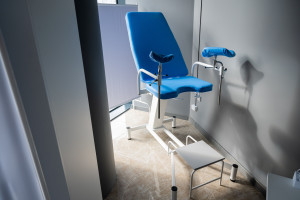The Morning After Pill Also for Cis and Trans Men. Deputy Minister Asks About Pregnancy Tests

- The 2024 pilot program does not prohibit emergency contraception for people with a male PESEL number - but practice varies
- Although the PESEL does not contain information about reproductive organs, access to the morning-after pill is excluded both for partners who want to relieve a loved one who needs emergency contraception, as well as for transgender men.
- Pharmacists cannot write a prescription "for someone else"
- Transgender men who can still get pregnant are often systemically invisible in pharmacies and registries.
- The Ministry of Health believes that direct conversation with the patient is a safety condition, even if it excludes some of those in need
In May 2024, the Ministry of Health launched a pilot program enabling people to obtain a prescription for emergency contraception without a doctor's appointment—directly at a pharmacy, based on a conversation with a pharmacist. In theory, the solution covers all people aged 15 and over who could become pregnant.
In practice, however, individuals with a PESEL number assigned to male gender were excluded—including transgender men and partners seeking the pill for a loved one. The system, while modern, lags behind medical and social realities, according to an interpellation submitted to the Ministry of Health by Marta Stożek, an MP from the Razem Party .
- As we approach European Union standards, where emergency contraception is widely available in most member states, it is worth considering that it is available regardless of the gender of the person purchasing it - he notes.
Minister of Health Jolanta Sobierańska-Grenda asks:
- Is it possible to extend access to emergency contraception to people with a PESEL number with a male gender designation assigned?
- Does the Ministry of Health see a possibility of removing the current restrictions on obtaining a prescription and purchasing emergency contraception related to the requirement to have a PESEL number indicating female gender?
In response to an interpellation, Marek Kos, representing the Ministry of Health, explains: the regulation does not limit access based on gender, but pharmacists must issue a prescription to the person who physically stands in front of them in the pharmacy - and they must provide this person with medical recommendations, information on side effects and the mechanism of action of the drug.
"In practice, a pharmaceutical prescription is issued to the person who visits the pharmacy under the program. If this were to be a person other than the person who is to use the prescribed medication, in this case a man, this could result in bypassing another requirement of the regulation under review, namely, that the program does not cover patients under the age of 15," we read.
This means that pills cannot be issued "as a spare," "for a partner," or "for someone who didn't show up." The Deputy Minister emphasizes that such "indirect" communication contradicts the very idea of an educational and health program—education requires directness, and the system doesn't provide for exceptions.
- An inherent element of the pilot program is an interview conducted by a pharmacist before issuing a prescription and an informational and educational component - he points out.
"During the interview, the principles of pharmacotherapy during pregnancy or the postpartum period are discussed , as well as the principles of self-monitoring and interpretation of test results obtained using in vitro diagnostic medical devices to diagnose pregnancy . It is difficult to assume that such activities aimed at men would produce the desired results," notes Deputy Minister of Health Marek Kos.
To put it simply: during a conversation with a pharmacist (i.e. the so-called interview), the following is discussed, for example:
- how the drug works if a woman is pregnant,
- how to perform a pregnancy test yourself and understand its results.
Questions may also include the date of your last period, cycle regularity, time since unprotected intercourse, and any medical conditions or medications you are taking. The pharmacist is required to conduct a medical history to determine whether there are any contraindications to the medication.
Marek Kos doubts the effective and, above all, reliable transmission of recommendations to the target recipient (i.e. the woman who would use emergency contraception).
What about transgender men? Technically, they can, but...The issue of transgender men is more complex. Despite changing their PESEL gender designation, these individuals can still become pregnant. Are they entitled to emergency contraception? The Ministry claims that the regulation does not exclude this. However, in pharmacies, the PESEL number serves as a filter—and IT systems and pharmacists' decisions often rely on gender designation as the primary criterion.
There are no clear procedures in place to accommodate patients outside the binary framework. As a result, someone with a uterus and the potential to become pregnant, but with a male PESEL number, may be turned away empty-handed – despite the absence of formal contraindications.
- The issue of the need to provide a PESEL number in a prescription is one thing, and blocking the possibility of issuing a pharmaceutical prescription for emergency contraception in the case of patients with a PESEL number identifying them as men is another thing, which does not result from the regulation of the Minister of Health regarding the discussed pilot program - explains Marek Kos only.
The Ministry does not anticipate any systemic changes or a clear expansion of the criteria, deeming the current regulations sufficient. It does not clearly specify how a pharmacist should proceed when a patient with a male PESEL number reports the need for contraception.
Copyrighted material - reprint rules are specified in the regulations .
rynekzdrowia














